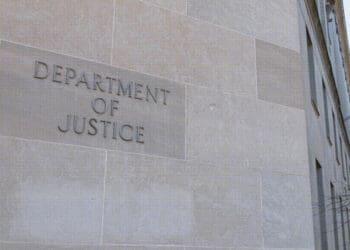Attorneys from Reed Smith discuss the uptick in insurance coverage for False Claims Act litigation and the impact of a recent Fourth Circuit decision – plus provide practical advice for how to maximize insurance recovery in the event of an FCA lawsuit.
There is little doubt that we will see a deluge of False Claims Act (FCA) litigation in the wake of the numerous financial relief programs the federal government has devised to stem the economic fallout of COVID-19. When the storm hits, an FCA defendant’s first thought may not be to look to its professional liability insurance policy, but perhaps it should be. Although insurance companies often reserve their rights with respect to covering FCA lawsuits, a recent Fourth Circuit ruling offers important lessons for policyholders seeking coverage for such suits.[1] Given the current regulatory environment, now is the time to start thinking critically about these issues.
The FCA and the Fourth Circuit Affinity Case
The FCA is the federal government’s primary tool for combatting alleged fraud against the government. It operates by imposing liability on anyone who knowingly submits or causes another to submit a false claim for payment to the government.[2] Cases may be brought by the federal government directly, but the FCA also provides an avenue for private citizens — “whistleblowers” or “relators” — to file suit on the government’s behalf.[3] If successful, a whistleblower stands to receive up to 30 percent of the total recovery, which can be substantial. Finally, the FCA also prohibits companies from taking adverse action against whistleblowers.[4] In FY 2019, 81 percent of newly filed FCA cases (636 of 782) were initiated by whistleblowers.[5]
Several factors exacerbate the cost of such lawsuits. First, the statute authorizes treble damages and civil penalties of up to a maximum of $23,330 per false claim submitted.[6] Second, the FCA has a very long statute of limitations (up to 10 years). Additionally, these cases are complicated and often require sophisticated defense counsel and expert consultants to conduct forensic analysis on all claims for reimbursement submitted. Given these high stakes, which also include the possibility of exclusion from Medicare participation or debarment from government contracting, FCA cases often settle — and for substantial amounts. In the fiscal year ending in 2019, the Department of Justice reported that it recovered more than $3 billion under the FCA, the majority of which came from the health care industry, followed closely behind by government contracting.[7] Indeed, recoveries since 1986, when the FCA was amended to provide greater incentives for whistleblowers, total in excess of $62 billion.[8]
In the Affinity case, the relator alleged that Affinity, a manager of adult care homes throughout the southeastern United States, submitted reimbursement claims to Medicaid for services that were never actually provided.[9] Upon learning of the FCA complaint, Affinity gave notice to its professional liability insurer and requested it honor its coverage obligations, but Affinity’s insurer denied coverage for the claim.
In the ensuing coverage litigation, Affinity argued that the FCA lawsuit triggered coverage because the policy covered “damages resulting from a claim arising out of a medical incident,” and the allegedly false claims indeed “arose” out of a “medical incident.” [10] The policy defined a “medical incident” as an “act, error or omission in [Affinity’s] rendering or failure to render medial professional services.”[11] Although Affinity acknowledged that billing for Medicaid reimbursement itself was not a “medical incident,” it argued that the allegedly fraudulent billing “arose” out of a “medical incident.”[12]
The Fourth Circuit, in a split (2-1) decision, agreed, finding that under North Carolina law, the phrase “arising out of” should be interpreted broadly for purposes of triggering coverage.[13] A broad interpretation of “arising out of” requires only some “causal connection” between the conduct defined in the policy and the injury for which coverage is sought.[14] Here, the Court stated that the “false billing [did] not arise in a vacuum”[15] and consequently vacated the lower court’s order (which had concluded otherwise) and remanded for further proceedings.[16]
Tips for Securing Coverage for Claims Arising Under the FCA
As FCA claims mount and litigation expenses increase, it is important for companies to consider all potential avenues for recovery and cost mitigation – including their insurance policies. Even before Affinity, several courts had recognized that professional liability coverage may be available for defending and settling FCA claims.[17] These cases are instructive because they reinforce the vital importance of reading policy language carefully and involving policyholder counsel early in the process.
Triggering Coverage
If and when your company becomes the target of an FCA lawsuit, consider your entire insurance program – in particular your directors and officers (D&O) policy and your professional liability (aka errors and omissions or E&O) policy. Close attention should be paid to policy language, with a particular focus on the following items:
- The definition of a “claim” – Often a “claim” is defined in part as “demand” for money on account of a “wrongful act” committed by the insured, but the definition of a “claim” can vary from policy to policy, and ascertaining when a “claim” that triggers coverage has been made can be challenging in the FCA context. A claim will almost always be presented with the filing of a lawsuit but can also arise with the service of a subpoena or Civil Investigative Demand (CID), receipt of a demand letter or even a request to toll the statute of limitations. And what happens when a complaint is filed under seal, as is the case with FCA lawsuits? These issues should be explored with policyholder counsel, as the timing of a “demand” is crucial not only for triggering coverage of a “claim,” but also for triggering a policyholder’s notice obligations under the policy.
- The definition of “loss” – “Loss” typically refers to legal damages and/or defense costs, among other things. But are there any carve outs for civil penalties or treble damages, which are common elements of FCA damages? Even if there are, address this issue with policyholder counsel, because there may still be covered “loss” despite any purported exclusions.
- For professional liability policies, the definition of “professional services” – Some of these policies define the term broadly, as in “professional activity rendered for a fee,” while others may define the term narrowly and specifically for the policyholder’s profession. In Affinity, the policy covered damages resulting from a claim arising out of an act, error or omission in the rendering or failure to render “medical professional services” (i.e., the health care services or the treatment of a patient).[18] Although the Court recognized that billing Medicaid for reimbursement was not itself a medical incident, Affinity’s alleged failure to render medical professional services gave rise to the FCA allegations, thereby triggering coverage.
- Is there a “final adjudication” requirement for dishonest conduct? – Exclusions purporting to limit coverage for dishonest, fraudulent, intentional or criminal conduct often apply only where such conduct has been finally adjudged in a court of competent jurisdiction. As most FCA claims settle before trial, policyholders should be prepared to argue that there is no “final adjudication” absent a judgment at trial.
Further, an insurer’s duty to defend and/or reimburse defense costs is broader than its duty to indemnify. Defense coverage attaches when there are any allegations in the underlying complaint that might trigger coverage. Thus, it is the factual allegations asserted in the complaint, not the label of the cause of action, that governs an insurer’s duty to defend.
Avoiding the Notice Pitfall
Deciding whether and when to provide notice of an FCA claim and which of your insurance carriers to notify can prove difficult. Under the FCA, any suit brought by a relator in the name of the government is filed under seal and remains under seal while the government investigates and decides whether to intervene or leave the relator to prosecute the suit in its place.[19] Thus, a company may not even be aware that an FCA suit has been filed against it until the complaint is unsealed – sometimes months or years later.[20] But since most policies providing coverage for FCA claims are claims-made, the insurer may argue that the claim was not made and reported within the applicable policy period – even if its policyholder was unaware of the lawsuit until it provided notice.
On the other hand, insurers may cite subpoenas or other communications with government investigators as events that should have triggered the notice obligation, even before an FCA claim is filed. Indeed, simply being aware of a preliminary FCA investigation may be reason enough to submit a “notice of circumstances” under many policies, whereby the policyholder can give notice of circumstances that could reasonably be expected to give rise to a claim in the future.
Again, policy language is key. A policy may require an insured to have actual knowledge of facts constituting a claim in order to trigger the notice obligation. But as these decisions can greatly affect your insurance program, we again recommend involving policyholder counsel as early in the process as is practicable.
Parting Advice When Thinking About Renewal
If your business is at increased risk of FCA liability, especially if you have accepted government funds related to fighting the COVID-19 pandemic, to which many strings have been attached,[21] you should proactively manage that risk when renewing your insurance program. Management liability programs like D&O and E&O are highly negotiated insurance lines, and often favorable policy language can be negotiated without an increase in premium costs. If you’re positioned to negotiate policy language, consider how to define a covered “claim,” as this can affect your notice obligations. Be wary of so-called “prior acts” or “prior litigation” exclusions, and be sure that if you have such exclusions, they require the insured to have actual notice of prior acts or prior litigation in order to apply. Finally, check that your policies’ definitions of the terms “loss” or “damages” are broadly worded and include fines, penalties and treble damages. You might also be able to secure coverage for punitive damages, with language stating that coverage for punitive damages will be determined by the law most favorable to coverage of punitive damages.
These are but a sampling of the types of issues policyholders should endeavor to discuss with coverage counsel during renewal – and before an FCA claim strikes.
[1] Affinity Living Grp., LLC v. Starstone Specialty Ins. Co., 959 F.3d 634 (4th Cir. 2020).
[2] 31 U.S.C. § 3729(a)(1).
[3] See 31 U.S.C. § 3730.
[4] Id. at (h).
[5] Department of Justice Fraud Statistics Overview, January 9, 2020.
[6] 31 U.S.C. § 3729 (a)(1)(G). The current per-claim penalties are adjusted for inflation and range from $11,665 to $23,331. See 85 Fed. Reg. 37004 for the June 2020 adjustment for inflation.
[7] Department of Justice Press Release, January 9, 2020.
[8] Id.
[9] Affinity at 640.
[10] Id.
[11] Id.
[12] Id.
[13] Id. at 642.
[14] Id.
[15] Id.
[16] Id. at 643.
[17] See Gallup, Inc. v. Greenwich Ins. Co., No. N14C-02-136FWW, 2015 WL 1201518 (Del. Super. Ct. Feb. 25, 2015); First Horizon Nat’l Corp. v. Houston Cas. Co., No. 15-cv-2235-SHL-dkv, 2016 US Dist LEXIS 62288 (W.D. Tenn. Apr. 21, 2016); Office Depot, Inc. v. AIG Specialty, Ins. Co., 722 Fed. Appx. 745 (9th Cir. May 21, 2018); Hotchalk, Inc. v. Scottdale Ins. Co., 217 F.Supp. 3d 1058 (N.D. Cal. 2016), aff’d, Civ. No. 16-17287 (9th Cir. June 4, 2018).
[18] Affinity at 640 (emphasis added).
[19] 31 U.S.C. § 3730(b)(2).
[20] In some cases, however, a complaint may be partially unsealed and the defendant is notified of the lawsuit but also prohibited from informing any third party about the pending lawsuit. In such occasions, defendants may choose to seek leave from the court to make required disclosures to third parties, such as insurers or lenders.
[21] For more information on the issues surrounding funds accepted under new programs under the CARES Act, see ”Strings attached: Mitigating the fraud and abuse implications of CARES Act provider relief funds,” Reed Smith Client Alerts, May 7, 2020.



 Sarah Cummings is a partner in
Sarah Cummings is a partner in  Max Louik is an associate in Reed Smith’s Insurance Recovery Group in the firm’s Pittsburgh office. He focuses his practice on representing policyholders in substantial insurance coverage matters in both arbitration and state and federal court. Max’s experience advocating for insureds includes mass tort product liability matters, long-tail environmental claims, employment practices matters, fiduciary liability claims, cyber liability and first-party property claims, among others. Max also counsels clients on their insurance coverage renewals and performs insurance program audits.
Max Louik is an associate in Reed Smith’s Insurance Recovery Group in the firm’s Pittsburgh office. He focuses his practice on representing policyholders in substantial insurance coverage matters in both arbitration and state and federal court. Max’s experience advocating for insureds includes mass tort product liability matters, long-tail environmental claims, employment practices matters, fiduciary liability claims, cyber liability and first-party property claims, among others. Max also counsels clients on their insurance coverage renewals and performs insurance program audits. Carrie Gorner is an associate in Reed Smith’s Life Sciences Health Industry Group in the firm’s Austin office. She focuses her practice on regulatory and compliance advice, as well as litigation matters. Carrie provides advice and support for hospitals, medical device manufacturers, pharmacies and other companies in the health care industry on matters related to the False Claims Act, Anti-Kickback Statute and Stark Law, as well as Texas state government investigations. Carrie also advises clients on OSHA-related compliance matters with an emphasis on developing internal safety policies and procedures.
Carrie Gorner is an associate in Reed Smith’s Life Sciences Health Industry Group in the firm’s Austin office. She focuses her practice on regulatory and compliance advice, as well as litigation matters. Carrie provides advice and support for hospitals, medical device manufacturers, pharmacies and other companies in the health care industry on matters related to the False Claims Act, Anti-Kickback Statute and Stark Law, as well as Texas state government investigations. Carrie also advises clients on OSHA-related compliance matters with an emphasis on developing internal safety policies and procedures.







